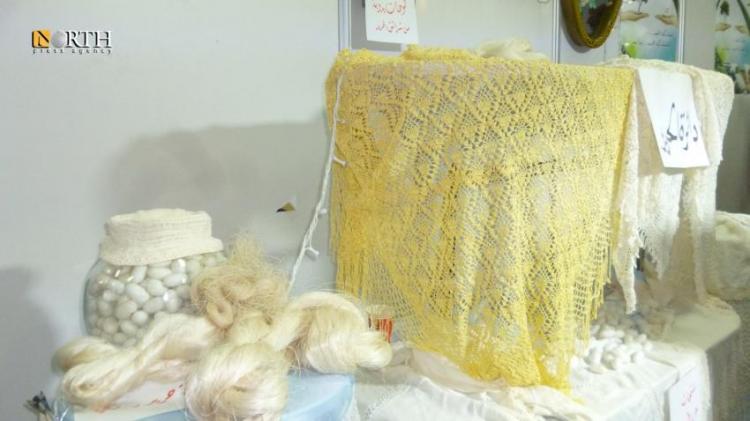Damascus – North-Press Agency
Those working in sericulture (raising silkworms) in Syria struggle to preserve this heritage profession from extinction, which was a source of income for many families decades ago. As reality changes, this profession has turned into a burden on breeders, who face great difficulties. Some of these are related to the environment, breeding requirements, and obtaining eggs from abroad, and others to the development of the production of rayon and ready-made textiles, which prompted millions to abandon natural fabrics.
Qais Eid al-Hassan, a silkworm breeder, told North-Press that the neglect of silkworm breeding and the silk industry in Syria came despite being a strategic crop in the governorates of Hama and Tartous. “This industry deteriorated for several reasons, the most of which was poor marketing and poor management of this product. I did not leave work even during the war. I supervised the hatching of eggs by the traditional manual method, after importing high quality eggs from China, Italy, Korea, and Argentina, but mean-spirited merchants sometimes sold me eggs of very poor quality.”
The natural silk handkerchief is sold for 50,000 Syrian pounds inside Syria. A silk sweater can be sold for 650,000 Syrian pounds, despite the difficulty of marketing.
Eng. Fahd al-Mushrif, director of plant protection at the Ministry of Agriculture in the Syrian government, told North-Press that the most important thing that this industry needs at the moment is educators whose numbers have declined due to the war in Syria and the inability to import from abroad. There is also the need for a special market for these natural products, and work is underway with China and India to strengthen local breeds.
The Ministry of Agriculture in the Syrian government also established a silk production complex in Latakia, and cultivated the berries on which the silkworms feed in all areas where worms are raised in an attempt to revive the profession of silkworm breeding.
Silkworm threads are considered to be the best, most powerful and flexible fibers, and silk clothing is distinguished by its light weight, bright color and ability to protect from the cold compared to clothes made from cotton and other textiles.

